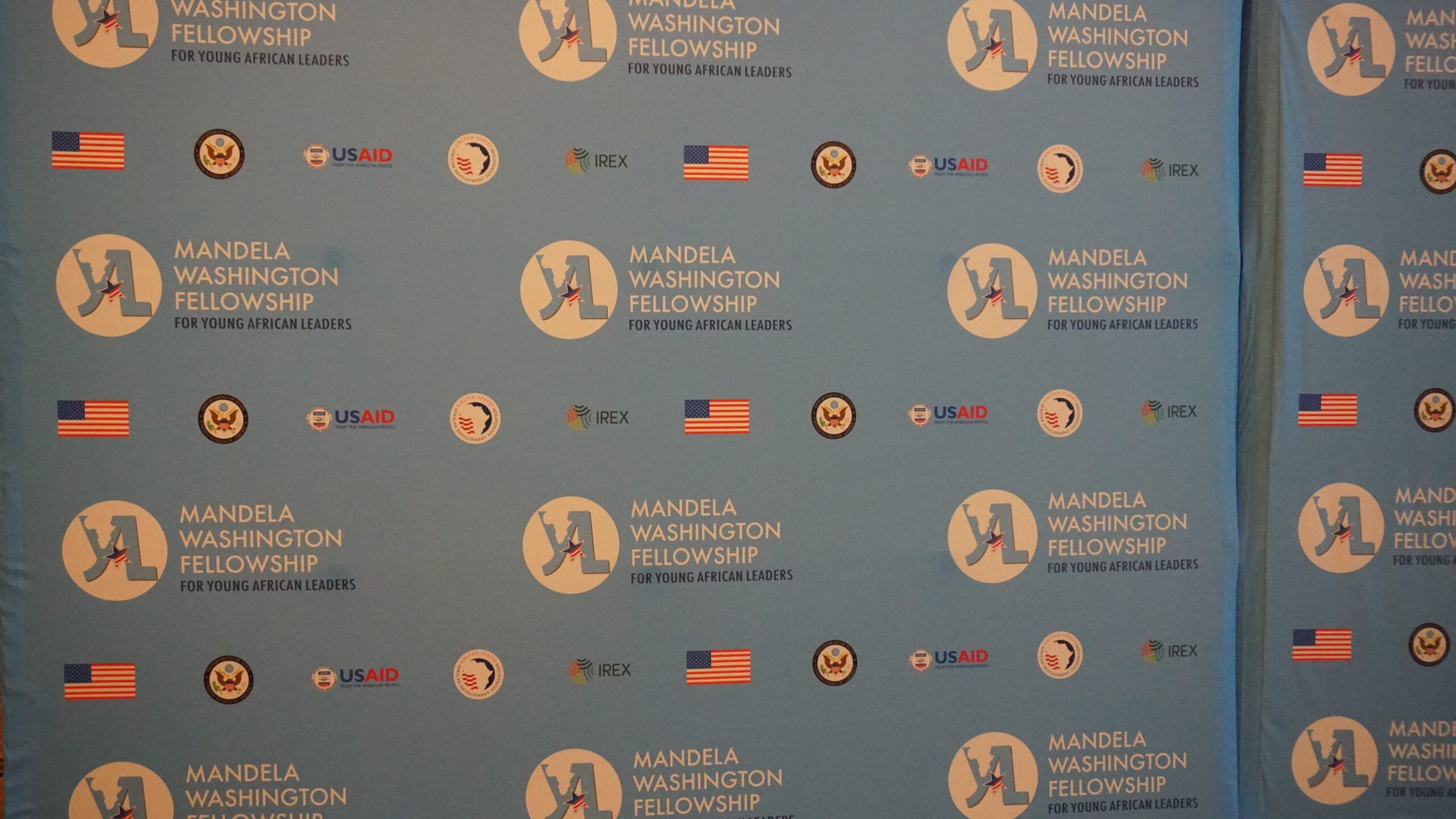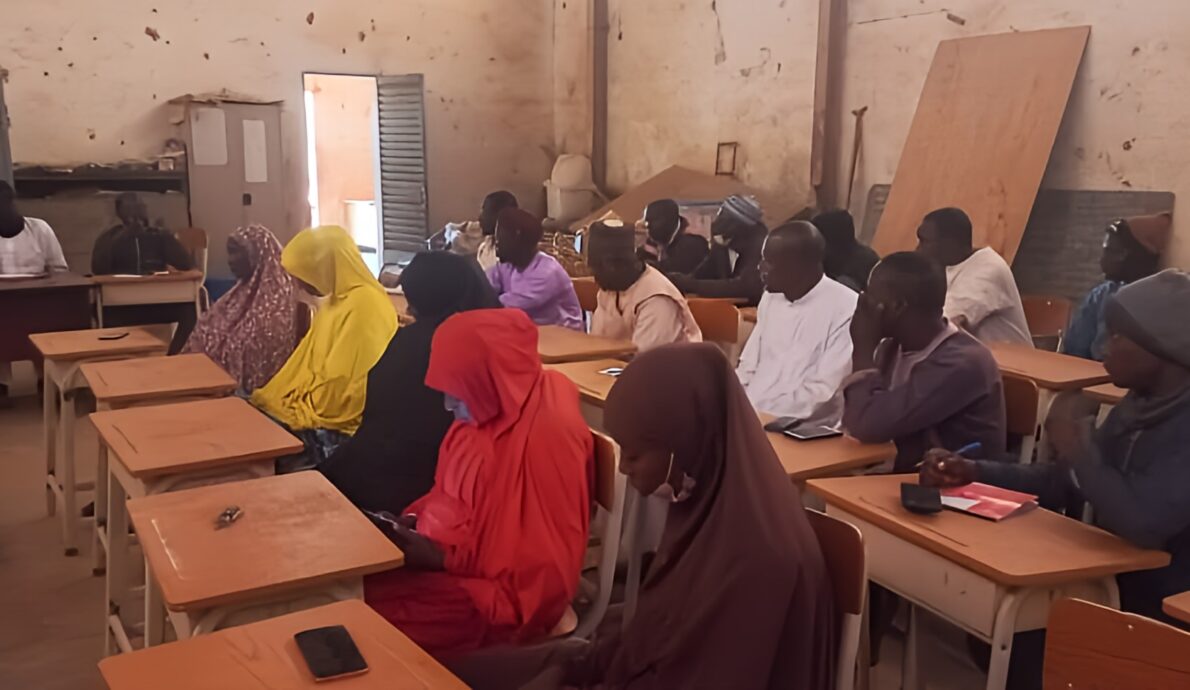Youth across Africa constitute a large portion of the population, yet they lack leadership development and opportunities to positively inform decisions that affect their communities. To address this challenge, Counterpart, in partnership with the International Research & Exchanges Board (IREX), implemented the flagship program of the Young African Leaders Initiative (YALI) known as the Mandela Washington Fellowship (MWF) from 2014-2019 through funding from USAID. The program engaged over 3500 youth across Africa between ages 25 and 35, providing them with training, peer mentoring, networking platforms, and personal and professional development opportunities through small grants. A snapshot of three program alumna can be found here.
Despite strong economic growth over the last decade, Africa has struggled to catalyze its youth demographic for broader social development. While jobs and opportunities for young people are consistently at the top of the development agenda for nearly every country in Africa, the reality is close to two-thirds of the continent’s youth are either unemployed or underemployed, stymied by a lack of private sector opportunities, weak civil societies, and poor governance. By targeting participants between the ages of 18-35 – a demographic that according to the United Nations accounts for 75% of the continent’s population – the MWF addressed these challenges, strengthening a new generation of African leaders to serve their countries and communities, creating opportunities for others, and positively influencing development across the continent.
Launched as an initiative to strengthen leadership capacity, provide training, and promote networking among Africa’s youth, the Mandela Fellowship successfully trained over 3,500 young African leaders, offering experiential and transformative leadership training in Public Management, Civic Leadership, and Business and Entrepreneurship.

What We Did
By investing in professional training and development for the next generation of leaders, MWF leveraged youth potential to deliver an unprecedented demographic dividend to the continent’s economic growth. More critically though, the program filled an ever-widening gap between what is taught in school and what is expected in the workplace or in home communities. According to the USAID-funded Youth Power, there has been a steady decline in investment in workforce development despite both educators and employers agreeing on its need. Specifically, soft skills seem to consistently lead to positive outcomes across multiple domains, including positive self-concept, self-control, and higher-order thinking. Social skills and communication also ranked as likely to increase the odds of youth success, while empathy and goal orientation emerged as important to violence prevention and sexual and reproductive health. Building youth’s personal and professional skills has the potential for long-term, community-wide benefits.
From practicums to mentoring to investing, the Fellowship armed young Africans with the knowledge and expertise to be better placed to shape their careers, become community leaders, address challenges in their communities, and even launch their own businesses. Private sector partners worked with youth to ensure that jobs were not just for income generation, but a means to exact positive influence in their communities for transformational change so that they can be catalysts for inclusive socio-economic growth.
What We Learned
We recognize that while training alone will not create jobs, supporting the next generation through training carries the potential for building core leadership skills that are relevant to the public, private, and non-profit sectors. Many African youth will create their own livelihoods, supporting their countries’ journey to self-reliance, through formal and informal means. Others may choose to work in government or with civil societies, which could positively influence rule of law and good governance and pave the way for investment and economic growth. After completing the program, most MWF alumni reported increased confidence and improved decision-making ability, increased engagement in both their home and community, and advancement in their career and increased income; 20% even went on to own their own business.
Another lesson learned from our approach is the importance of linking youth at the regional level. Through the Regional Leadership Centers, as well as its alumni network, YALI Africa’s broad reach extends throughout sub-Saharan Africa, promoting cultural understanding and cooperation in regions facing increasing social divides. It also aligns with the African Continental Free Trade Area (AfCFTA), an agreement aimed at economic integration that requires African countries to add value to their primary commodities and boost their services sector, among other things. Working in partnership with private sector actors to leverage the benefits of AfCFTA, YALI Africa has the potential to catalyze job creation across borders and through intra-African trade, and help mitigate the challenges of some of the continent’s lesser-developed economies while incentivizing youth not to migrate out of Africa in search of better opportunities.
Looking Forward
Strengthening the knowledge and skills of the world’s youngest population is inextricably linked to Africa’s ability to grow and thrive. YALI alumni today can transform the leadership landscape in Africa, to unify like-minded young people and train them to make an impact. Ultimately, leadership in Africa will be profoundly changed because of YALI, with its robust professional network of uniquely trained, highly qualified alumni that will join governments, civil societies, and corporate workplaces across the continent. With Africa poised to be the biggest global market, the initiative has helped prepare the continent for success, advancing the next generation of civil society in its efforts towards inclusive socio-economic growth.




